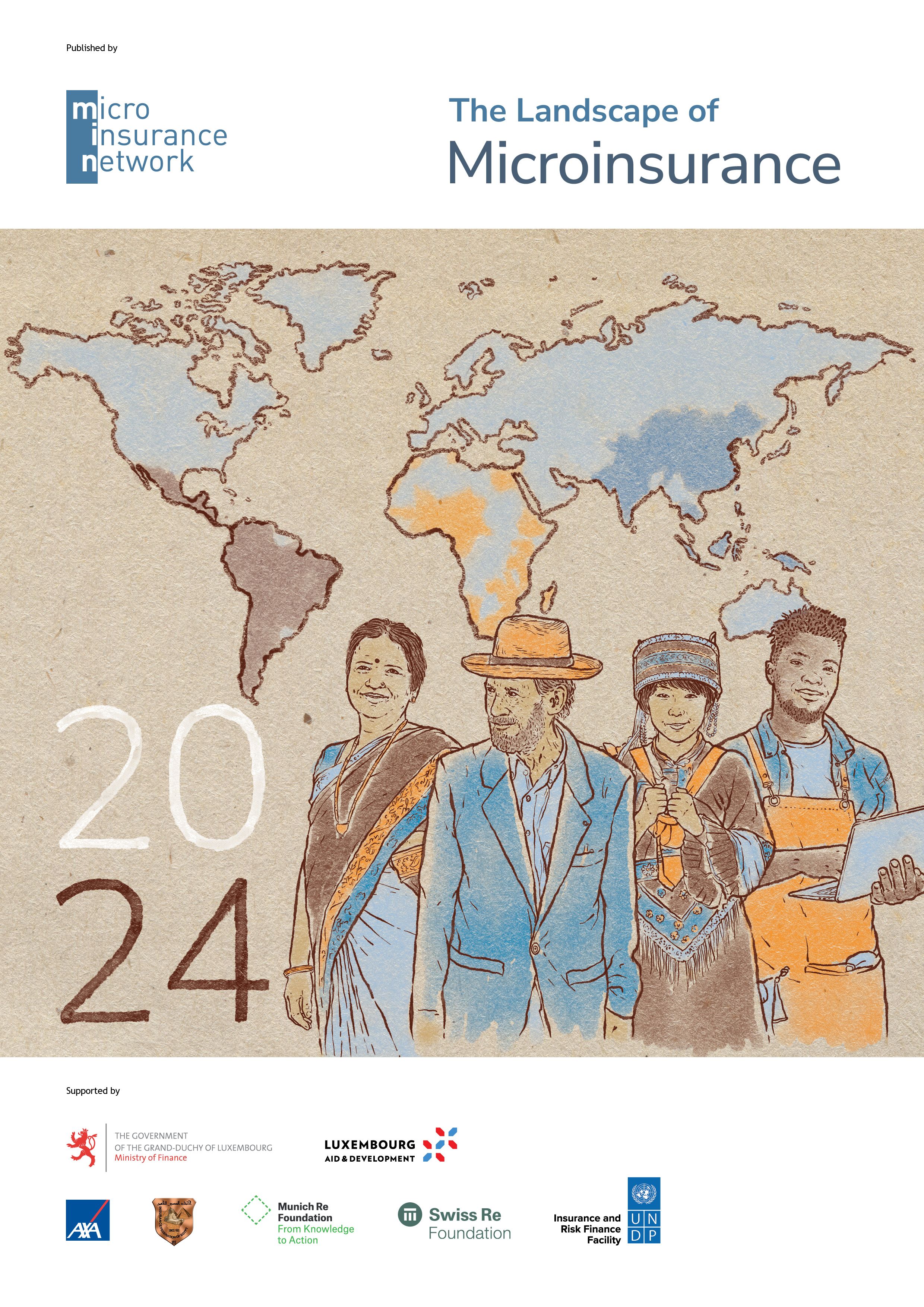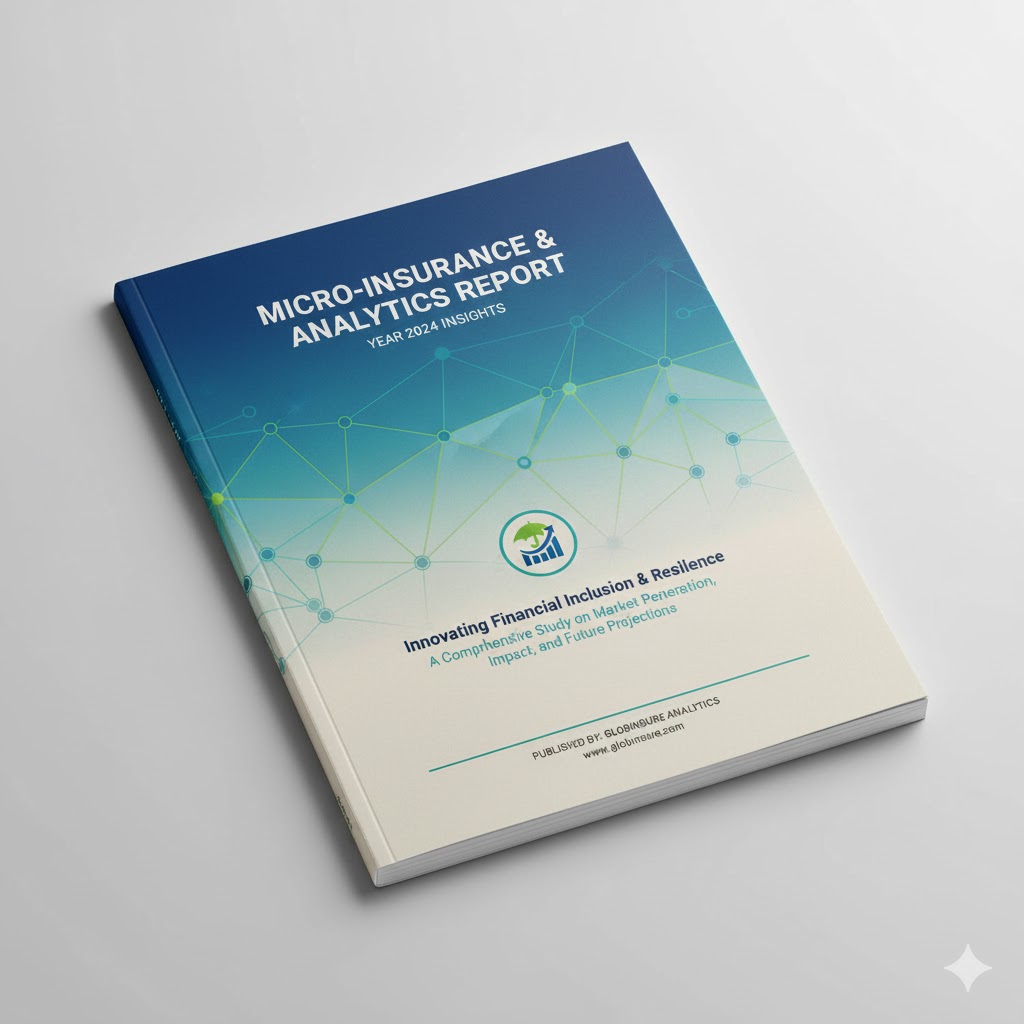Displaying 1 - 15 of 20

The Landscape of Microinsurance 2024
The Landscape of Microinsurance 2024 analyzes the growth and evolution of microinsurance, highlighting its critical role in supporting vulnerable populations facing climate shocks, crises, and financial insecurity. It covers 344 million people across 37 countries, examines regulatory frameworks, distribution channels, and subsidies, and emphasizes the need to close the protection gap while fostering long-term market development.
Date d'émission
2024
Sujets
Sujet (Produit)
Région

AXA MANSARD, NIGERIA – The case for insuring women for a better tomorrow
AXA Mansard, one of Nigeria's largest insurance providers, launched a focused strategy in 2016 to serve women in the retail insurance space. This initiative emerged from detailed market research identifying the unique needs of Nigerian women. AXA tailored products specifically for this segment and forged partnerships with women-led organizations to build trust and raise awareness about insurance. The case highlights practical lessons from product innovation, inclusive marketing, and collaboration as a pathway to greater gender equity in insurance.
Date d'émission
2020
Sujets
Sujet (Produit)
Région

Bringing Health Microinsurance to Kenyans via Mobile Phone
Kenya-based pilot that bundled hospital cash, digital loans, and mobile health tools to increase access and affordability. MicroEnsure piloted Fearless Health by combining hospital cash benefits with mobile-enabled digital health loans to support underserved Kenyan populations.
Date d'émission
2018
Sujets
Sujet (Produit)
Région

Case brief: ALM SEGUROS
Case brief: ALM SEGUROS. This presentation introduces ALM Seguros as one of the pioneering microinsurance companies in Brazil. The company focused on delivering accessible life and funeral insurance to underserved communities, building trust through affordable premiums and simplified claims. The case illustrates how early entrants in the Brazilian market paved the way for inclusive insurance by aligning product design with local needs and regulatory frameworks.
Date d'émission
2021
Sujets
Sujet (Produit)

Case brief: FASECOLDA
Case brief: FASECOLDA. This entry presents the activities led by the Federation of Colombian Insurers (Fasecolda) to strengthen inclusive insurance in Colombia. It covers efforts in financial education, technical training, regulatory engagement, and the promotion of innovative products for underserved segments. The case demonstrates how institutional leadership and coordinated action have advanced capacity building and inclusion in the Colombian insurance sector.
Date d'émission
2020
Sujets
Sujet (Produit)

Case Brief: Field Accident Insurance - PROFIN Foundation
Since 2018, Bolivia's PROFIN Foundation has offered a unique sport accident insurance for amateur football players with no medical coverage. The product is distributed through sports associations and covers players' injuries during official matches. Today it protects over 9,000 players, and has prompted other insurers in Bolivia to develop similar offerings.
Date d'émission
2020
Sujets
Sujet (Produit)

Case brief: MIDAGRI
Case brief: MIDAGRI. The Peruvian Ministry for the Development of Agriculture and Irrigation (MIDAGRI) introduced agricultural insurance as a strategic policy tool to enhance the competitiveness of the agricultural sector. This led to the creation of the Seguro Agrícola Catastrófico (SAC), a public insurance program designed to protect smallholder farmers from extreme weather-related losses. The case outlines the structure of SAC, its implementation, and the government's role in building resilience through accessible, state-supported agricultural insurance.
Date d'émission
2021
Sujets
Sujet (Produit)

Case brief:TUNAJALI
Case brief: TUNAJALI. "Tunajali" — meaning "we care about you" — is an inclusive e-commerce insurance initiative developed to serve low-income customers across Latin America and the Caribbean (LAC). The program leverages digital platforms to provide accessible health insurance, with a focus on simplifying enrollment and claims processes. It demonstrates how tech-enabled delivery models can overcome traditional barriers and scale protection for vulnerable populations.
Date d'émission
2020
Sujets
Sujet (Produit)

COVID-19 and the Insurance Industry: Why a Gender-Sensitive Response Matters
COVID-19 and the Insurance Industry: Why a Gender-Sensitive Response Matters. This guidance note explores how the COVID-19 pandemic affected the gender gap in insurance access and services. It identifies four key areas where applying a gender lens can improve customer-centricity: operational practices, brand communication, product innovation, and new distribution channels. With practical insights from IFC's Women's Insurance Program, the paper offers a roadmap for insurers to better serve women during and beyond crisis periods.
Date d'émission
2020
Région

Empowering Women, Building Trust: A Case Study of a Women-Centric Insurance Solution in Nigeria
Describes FCMBeta Health, a women-focused micro health insurance product in Nigeria, bundled with micro-loans, offering hospital cash and maternity coverage. Over 90,000 enrolled by 2025.
Date d'émission
2025
Sujets
Sujet (Produit)
Région

GREEN DELTA, BANGLADESH – The case for insuring women for a better tomorrow
The case for insuring women for a better tomorrow. Green Delta Insurance Company (GDIC), a private non-life insurer in Bangladesh, partnered with IFC and others to design targeted insurance solutions for women. This note explores why women represent a key growth segment, how GDIC tailored its approach for Bangladeshi women, and the lessons learned from implementing this gender-inclusive strategy in the local market.
Date d'émission
2020
Sujet (Produit)
Région

How Chhaya is Building an End-to-End Digital Microinsurance Platform in Bangladesh
Bangladeshi insurtech Chhaya develops affordable digital health and life insurance distributed via mobile payments (bKash) with a subscription model.
Date d'émission
2025
Sujets
Sujet (Produit)
Région

Making a profitable inclusive insurance business: a case study of Britam, Kenya
In 2007, Britam, a Kenyan financial group, launched its first microinsurance product for low-income customers. Over 11 years, Britam built a profitable microinsurance business unit covering more than 700,000 lives by 2017. This case study distills key lessons from Britam's journey to guide other insurers in serving traditionally excluded markets.
Date d'émission
2019
Sujets
Sujet (Produit)
Région

Making climate risk microinsurance work. Case Study: Green Delta Insurance Company (GDIC), Bangladesh
Making climate risk microinsurance work: Green Delta Insurance Company in Bangladesh. This case study explores the origin, design, and delivery of Green Delta's agricultural microinsurance program. It reviews pricing mechanisms, subsidy structures, operational challenges, delivery models, and real-world performance results. The analysis offers key lessons for building climate resilience through private-public partnerships in emerging markets.
Date d'émission
2022
Sujets
Sujet (Produit)
Région

Making climate risk microinsurance work. Case Study: Philippine Crop Insurance Corporation (PCIC), Philippines
Case study of the Philippine Crop Insurance Corporation (PCIC) and its role in climate risk microinsurance. This diagnostic overview outlines PCIC's origin, goals, and subsidy model, and examines the challenges and performance of its delivery system. The paper also highlights pricing strategies, key operational hurdles, and practical lessons learned — contributing to a broader understanding of how public sector agricultural insurance can support resilience in Asia.
Date d'émission
2021
Sujets
Sujet (Produit)
Région
